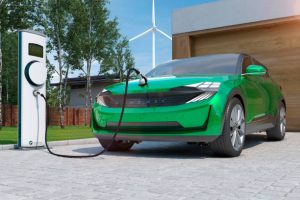Introduction
Electric cars of the next generation are changing the manner in which we perceive transport. These vehicles are expected to offer safer and cleaner mobility and more efficient mobility with fast technological progress in battery technologies, smart connectivity, and environmentally friendly materials.
With the governments and companies spending substantial amounts of money on green technologies, next-gen electric cars are becoming more available, cheaper, and appealing to drivers all over the world.
The Next-Gen Electric Cars Are on the Rise

Next-gen electric cars are increasingly gaining popularity each year. With the increasing cost of fuel and the environmental issues that are raised, consumers are turning to alternatives to the conventional gasoline powered automobiles.
Manufacturers are reacting by building electric cars that are more range able, faster to charge and have more innovative features. This change is representative of a wider trend in the world of solutions to sustainable transportation in the future to a cleaner future.
State of the Art Battery Technology
Developed battery technology is one of the largest breakthroughs that made next-gen electric cars. The current battery makes the electric vehicle more convenient as it has a higher range of driving and takes less time to become charged.
High capacity lithium-ion cells and solid-state batteries are increasing efficiency, safety, and life and can help break the previous limitations and motivate more drivers to turn to electric mobility.
Infrastructure Improvement Charging
Charging infrastructure is one of the key aspects that affect the uptake of next-gen electric cars. Fast-charging stations are growing in numbers by governments and individual firms.
There is less range anxiety, less charging time is taken, and it is more accessible. Electric cars are also becoming more convenient to both the urban and rural drivers with the development of innovative wireless and solar-powered methods of charging.
Innovations in Sustainable Design
The future electric vehicles are adopting greens in all areas of design. The designers employ recycled materials, interiors and components, which are environmentally friendly.
The minimum weight materials enhance efficiency, and the aerodynamic designs consume less energy. The innovations do not only improve the performance but also reduce carbon footprint and thus are aligned to the world sustainability objectives.
Incorporation of Smart Technologies
The future electric vehicles are being fitted with intelligent features more and more. Such features as autonomous driving and navigation, which rely on AI, and other connected applications will make the car more convenient and safe.
Drivers are able to track energy consumption, schedule trips, and obtain car diagnostics in real-time. Such a technological infiltration guarantees a smooth and smart driving experience to the owners of the next-gen electric cars.
Environmental Impact and Benefits
The move to next-generation electric vehicles would limit the amount of harmful emissions in the air, positively influencing the quality of the air and reducing climate change. Due to the reduced level of pollutants generated by the electric cars compared to the conventional vehicles, and the fact that renewable energies may be incorporated in them to make them even cleaner.
These advantages contribute to the international environmental programs and give consumers a sustainable transportation option that does not impact either performance or comfort.
Price and Economical Factors

Though the initial cost of next-gen electric cars may be high, long-term costs are high. The owner benefits are less expensive in terms of fuel and maintenance needs as well as through incentives provided by the government.
Also, with increased production of battery life and advancement in technology, the prices of the next-gen electric cars are likely to be lower and thus more competitive to the traditional cars.
The role of Autonomous Driving
One of the major innovations in the next-gen electric cars is the autonomous driving technology. Autopilot skills increase the safety, decrease traffic jams and efficiency.
Electric propulsion, combined with AI-driven navigation, can enable these vehicles to find the best way, conserve energy, and offer a hands-free and comfortable driving process, which will mark a radical change in human-computer interaction with transportation.
Issues with the Next-Gen Electric Cars

Even with such achievements, next-generation electric vehicles have issues. Raw materials are needed in battery manufacturing, which raises the issue of sustainability. There is a weak infrastructure to charge in remote locations.
Also, there should be an improvement in the area of consumer information and reliability. It is important to overcome these obstacles to ensure the popularity and further development of electric mobility on a global scale.
Trends in Electric Mobility to come
The future of the next-gen electric cars is bright. The energy storage, charging, autonomous and connectivity will keep improving efficiency and user experience through innovation.
Manufacturers are looking into hybrid solutions, solar integration and new materials to go above and beyond. The future development of electric cars that are next-gen will characterize sustainable mobility in decades.
Conclusion
Electric cars of the next generation are transforming the world of transportation by bringing new technologies of sustainability, technology, and efficiency. These vehicles provide viable solutions to the issues of environmental and energy as they are equipped with advanced batteries, autonomous driving, and other features.
With the improvement of infrastructure, price, and overall awareness, next-gen electric vehicles will become the preferred option, and the world will shift to a cleaner, smarter and more sustainable present.












Add Comment